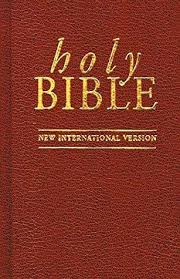Bookmark Daily Bible Reading Calendar By: Ehimwenma E. Aimiuwu – Please LIKE us on Facebook
Isaiah 12:
On that day, you will praise God despite God�s anger. You will also shout aloud to all nations the good things God has done. This does not necessarily mean genuine repentance. It could be a return to God out of distress and pain. How many times did Jewish Kings and people return to God after God’s wrath, only to return to idols within a generation when the wrath was over?
Isaiah 13:
There is great noise in the mountains for God is mustering an army for war. Great destruction will befall Babylon, hands will be limp, hearts will melt, and there will be great anguish like a woman in labor. God will overthrow Babylon and no one will live there for generations except animals. It seems God does not punish people for long. God loves worshippers and looks for repentance. God’s wrath seems to be long enough to remind people and the surrounding nations that he is in charge. Since God’s wrath is usually not permanent and less frequent, the godless and wicked then take advantage of it to convince others that God does not really exist or God’s wrath was just a natural coincidence that is usually overcome in time.
Isaiah 14:
God will have mercy on Jacob and restore Israel. They will unite with nations and they will bring Israel to their place. Israel will also rule over their captors and oppressors. God even expects Israel to taunt the Babylonians when they fall because God will cut the Babylonians off. God also insists that whatever he planned will be and whatever he purposed will stand. God assures the destruction of Assyrians and Philistines. Many nations were supposed to be destroyed, but many are still here even if the name of their countries have changed. After all, Babylon as an empire is gone, but their descendants are still here in Iraq. Is God therefore inconsistent, too forgiving, or his destruction actually means conquest at the moment in time to create room for repentance?








